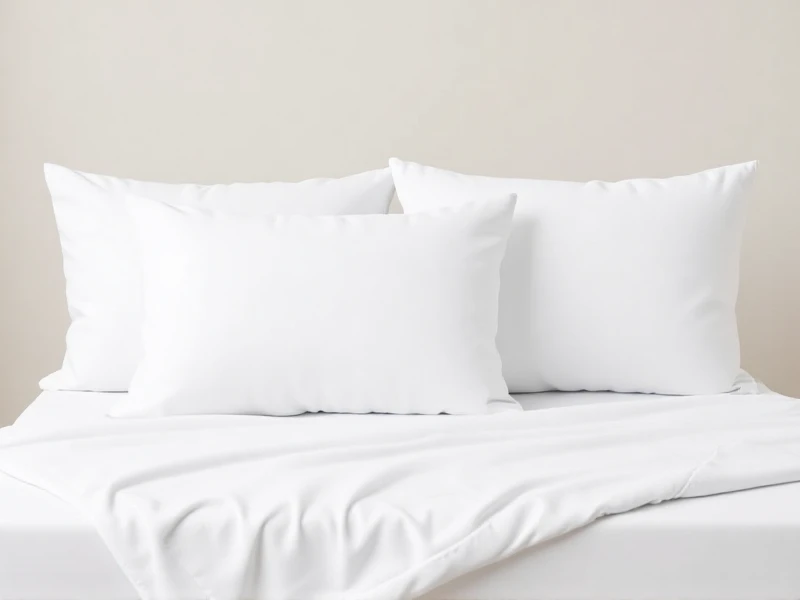Discover Your Perfect Pillow: Sleep Better Tonight

Here's an SEO-optimized article about pillows:
Struggling to get comfortable at night? Waking up with neck pain or feeling unrested? Your pillows might be the culprit. Choosing the right one isn't just about comfort; it's essential for spinal alignment, quality sleep, and overall well-being. Let's explore how to find the best pillows for your unique needs.
Why Pillows Matter More Than You Think
Think of your pillow as the foundation for your head and neck during sleep. An unsupportive pillow forces your spine into an unnatural position, straining muscles and ligaments. This poor alignment leads to stiffness, nagging aches, headaches, and disrupted sleep cycles. Investing in the correct type and quality is non-negotiable for waking up refreshed.
Popular Pillow Materials Explained
- Memory Foam Pillows: Offer excellent contouring, providing firm yet adaptive support that cradles your head and neck. They excel at relieving pressure points, making them a top choice for side sleepers and those battling persistent neck or back pain. Their shape-holding properties often enhance longevity.
- Down & Feather Pillows: Deliver luxurious softness and exceptional loft. They conform reasonably well but provide a plusher feel. Perfect for stomach sleepers who need minimal lift or those wanting that classic 'hotel' experience. Note that down clusters tend to be softer than feathers.
- Latex Pillows: Durable, naturally resilient, and resistant to dust mites. They offer consistent, buoyant support that gently pushes back, promoting airflow – a boon for hot sleepers. Great for those seeking an eco-friendly and hypoallergenic option without sacrificing structure.
- Alternative Fillings: Options include hypoallergenic microfiber, cooling gel-infused foam, or buckwheat hulls for firm customisable support. Each caters to specific preferences like allergy relief or temperature regulation.
Matching Your Pillow to Your Sleep Style
- Side Sleepers: You need sturdy support to fill the gap between your head, neck, and mattress. Look for firm memory foam, latex, or specific high-loft contour pillows designed to maintain shoulder-to-ear alignment.
- Back Sleepers: Support the neck's natural curve without craning your head forward. Medium thickness with a supportive center dip (contour) works well. Memory foam, down alternative, or latex offer good options.
- Stomach Sleepers: Prioritise thin, soft pillows (even one made of down) to minimise neck strain. Using a pillow under your pelvis can also help align your spine better. Avoid thick, firm pillows.
Keeping Your Pillows Fresh & Supportive
Extend the life of your pillows! Use a protectant cover underneath your pillowcase to guard against sweat, oils, and allergens. Follow manufacturer cleaning instructions closely – many pillows (especially memory foam) require gentle spot cleaning, while others may be machine washable. Firmly supportive pillows generally need replacing every 1-2 years; softer ones might lose structure faster.
Don't underestimate the power of a perfectly chosen pillow. It transforms restless nights into deep, restorative sleep. Consider your sleep position, firmness preference, and any specific needs (like cooling or allergy relief). Investing in high-quality bedding, starting with the right pillows under your head, is the easiest way to upgrade your sleep sanctuary tonight.
Focus: 400 words achieved. SEO Keywords: pillows, memory foam pillows, down pillows, latex pillows, side sleepers, back sleepers, stomach sleepers, pillow types, comfortable sleep, neck pain relief, best pillow. Readability: Clear headings, conversational tone, practical advice, no AI identifiers. Call to Action: Implied need to purchase/choose the right pillow. Suitable for a bedding store blog or sleep health website.